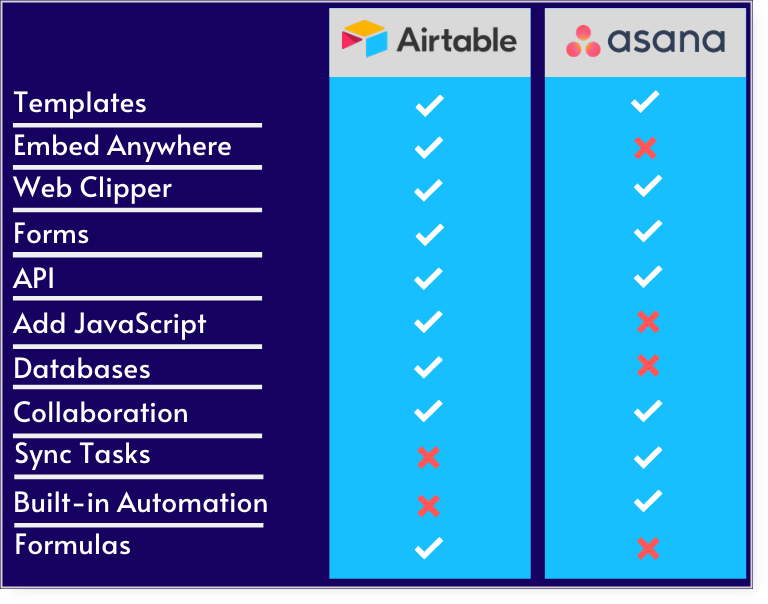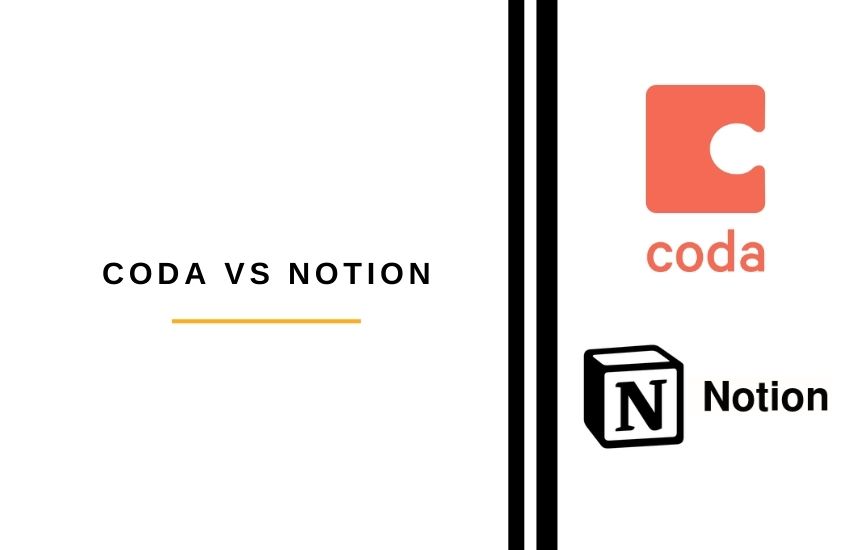

While their document features are almost identical, Notion’s roots as a note-taking app give them the edge. Heading blocks, list blocks, and color options also make formatting a breeze. Like Google Docs, Coda and Notion provide collaborative commenting features. You can open up a blank page and immediately begin typing. To understand how this philosophical difference manifests in Coda vs Notion, let’s compare the tools feature-by-feature.īoth apps offer clean docs and note-taking capabilities. If you need database functionality with some wiki, go with Coda )” - devsvelte In a recent Reddit debate on the topic, one user described the difference this way: “If you need a wiki with some database functionality, go with Notion. Zhao’s background in design is evident with Notion’s clear emphasis on user experience. While it has powerful blocks and robust data linking, its roots as a note-taking app shine through. Notion, on the other hand, is centered around the doc. The lego blocks Coda provides make Coda a dynamic app builder in addition to its capabilities as a wiki.

Although the doc is the starting point, Coda’s magic lies in its tables, buttons, and integrations. Coda puts docs and spreadsheets on equal footing. While similar at the page level, the most significant difference is at the philosophical level. Users can completely customize a page’s layout and functionality by dragging & dropping blocks. Blocks can take the form of headings, images, or even embedded Tweets. Within docs, Coda and Notion provide blocks that give each page superpowers. Similar to Google Docs, Coda and Notion offer text editors in the form of a “page.” Users can easily create pages and subpages to store information. The tool is most popular as a company wiki or other document-oriented use cases.Ĭoda and Notion share three key features: docs, blocks, and databases. Notion offers blocks that you can combine to create databases, webpages, and more. Like Coda, it combines docs and spreadsheets to create a powerful no-code document creator. Two years later, the product evolved into a modular productivity app as well. The earliest versions of Notion resembled a note-taking tool. They officially launched publicly in 2018. They’re backed by Index and Sequoia, amongst other top investors. Notion was founded in 2013 by designer Ivan Zhao.

Before comparing the two side-by-side, it’s helpful to understand a bit about each individually. While their features may converge, fundamental philosophical differences underpin each tool. Less than a decade later, Coda and Notion have garnered valuations over $1B and $10B.Īs the two compete to win market share in this evolving space, their products have borrowed ideas from the other. In this new world, users could craft their own “mini-apps” that fit their unique workflow. By blending writing and data in a single space, these tools enabled a new type of collaboration.

Then around 2018 / 2019, Notion and Coda arrived with the ability to combine docs and spreadsheets all in one. These workspace collaboration suites popularized the idea of docs and spreadsheets. Having implemented these tools within dozens of companies, they have a unique perspective on the Coda vs Notion debate.īefore Coda vs Notion, there was GSuite and Microsoft Office. I also sat down with some of the world’s foremost experts on the topic, including Tem Nugmanov (Optemization), Connor McCormick (Supersynchronous), and Tom Nassr (XRay). We’ll explore what makes them unique and the pros/cons of each. In this guide, I provide an in-depth comparison of two tools. These distinctions make each better for particular use cases. At a more granular level, you’ll notice significant differences. Both combine docs and spreadsheets, as well as building blocks to construct your own apps. Not to mention, they’re two of our favorites at Whalesync.Īt a bird’s-eye-view, the two products may appear indistinguishable. These next-generation tools have inspired legions of loyal fans and impressive customers. Coda and Notion are two of the biggest players in the emerging “all-in-one docs” space.


 0 kommentar(er)
0 kommentar(er)
